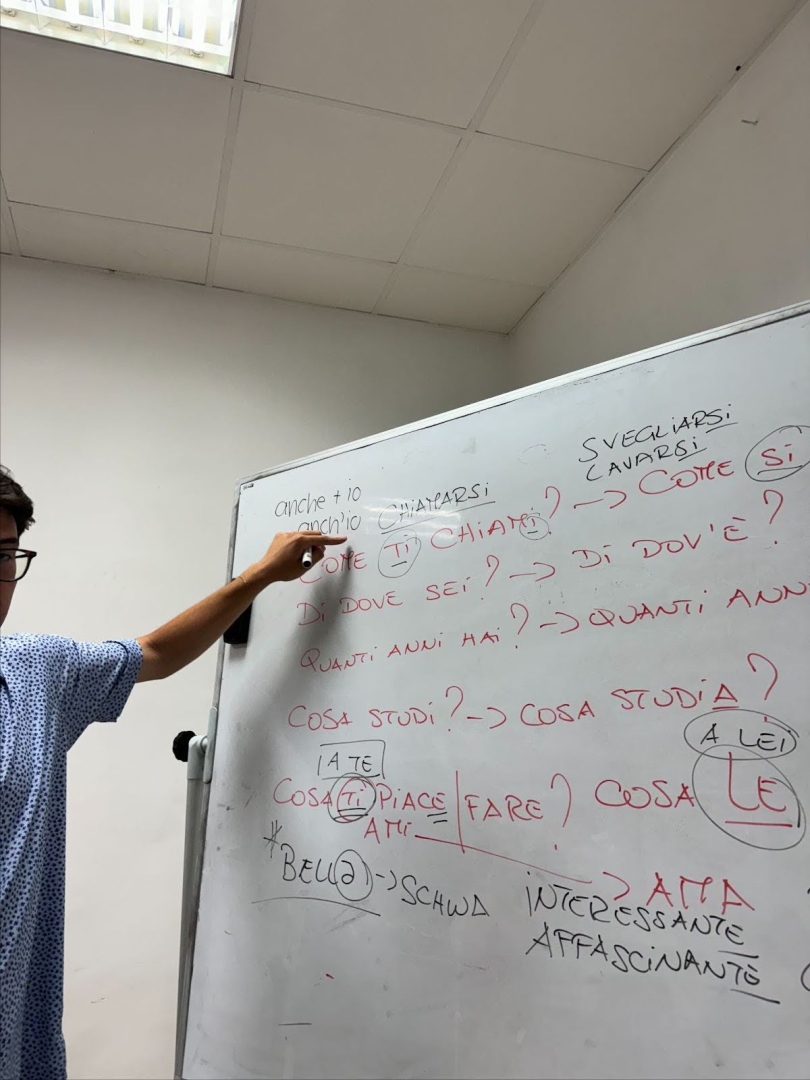
Drill (in Rome)!
If you didn't know, Dartmouth teaches foreign languages in a special way, called the Rassias Method. It was developed by former Dartmouth professor John Rassias in an effort to help students acquire a language quickly through repetition and exposure.
Back on campus, I had heard a lot of my friends talking about drill, which can lament an early wakeups depending on the session tine, but seemed to have an overall positive attitude regarding the program. I had no idea what to expect when I walked into my first Italian 1 drill session this summer. I was already familiar with my drill instructor, but had little information about what he would be teaching us. It was early in the morning—at least by my summer standards—and I was a bit anxious. Luckily, I had nothing to be worried about.
According to the Rassias Center's website, "classroom techniques involved are rapid-paced, theatrical, highly creative, imaginative, and necessitate great quantities of enthusiasm." They weren't kidding. Once my fellow classmates and I had dragged our chairs into a semicircle, our drill instructor jumped right in. He said a phrase in Italian, snapped his fingers, picked a student randomly, and then waited for them to repeat it back. Soon, we started being asked to modify the phrases or repeat back full sentences. I was surprised by how quickly everyone caught on to the format, and how quickly the session flew by. On F.I.R.E, drill sessions are 30 minutes long and occur twice a day, Monday through Thursday. In addition to the standard repetition exercises, we have also played Hangman, used whiteboards to practice conjugation in groups, and had discussions about colloquial words and phrases we hear on the streets of Rome.

I was initially annoyed by the 9:20 start time for drill—especially since our apartments are located about 30 minutes away from the Dartmouth College Rome Center, where all of our learning takes place. But I've come to really enjoy my morning commute. I like moving around the city before (most of) the tourists start to crowd the streets and riding the tram with Romans on their way to work.
As someone who has never tried to learn a spoken foreign language before (although I do have experience with Latin, which I described here), I really think drill has been helpful; making mistakes is almost encouraged, and feedback is both targeted and immediate. The environment is incredibly comfortable, and I love watching my fellow students improve at something I know they're working really hard on.
When I return to campus in the fall, I know that I will miss hearing Italian being spoken all around me, every day. I hope that my Italin 3 drill sessions provide a little reminder of what my summer in Rome was like, and continue to aid in my acquisition of the language which I have come to love. Who knows—maybe one day I'll even try my hand at becoming a drill instructor (or a Latin Learning Fellow, which I talked about here) myself!



















